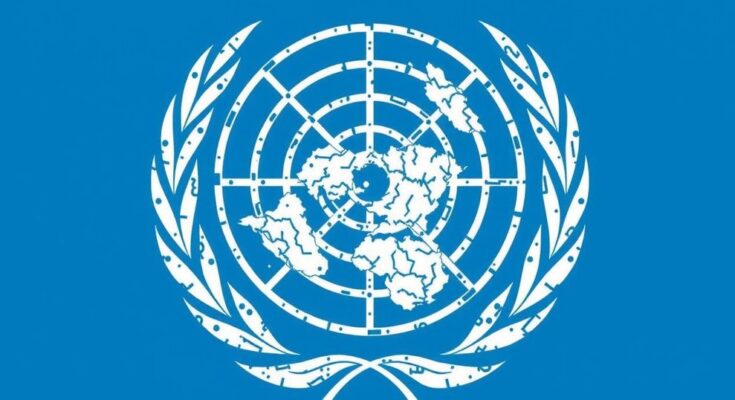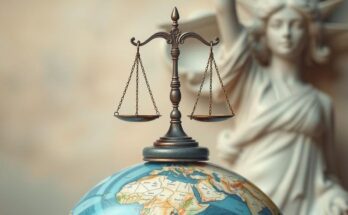The UNHRC’s report on Venezuela exposes severe human rights violations during the electoral cycle that led to Nicolás Maduro’s third term. Detaining children during protests, the report highlights systemic abuses like arbitrary detentions and torture, resulting in a call for the renewal of the UN’s fact-finding mission. The situation continues to deteriorate, prompting international condemnation and support for victims seeking justice.
In a stark reminder of Venezuela’s ongoing human rights crises, the United Nations Human Rights Council (UNHRC) recently reported “gross human rights violations” tied to the electoral cycle that led to Nicolás Maduro’s controversial third term. This report detailed numerous abuses, including arbitrary detentions and torturous acts, primarily attributed to the Maduro regime, security forces, and affiliated civilian groups. Among those caught in the turmoil were 158 children, detained during protests and charged with serious crimes like terrorism. By mid-October, the rights organization Foro Penal identified nearly 1,936 political prisoners within Venezuelan borders. On October 11, the UNHRC voted to extend its fact-finding mission on Venezuela for another two years, underscoring growing international concerns regarding the country’s human rights landscape. This mission was initiated in September 2019 to probe extrajudicial killings, enforced disappearances, and other cruel treatments occurring since 2014. Despite non-cooperation from the Venezuelan government, the mission has been pivotal in collecting evidence that supports the quest for truth and justice. This recent resolution was put forth by several nations including Argentina, Canada, and Chile, and was adopted with a vote of 23 to 6, marking increased support compared to previous years. Countries like Alegria and China opposed the resolution while Brazil opted for abstention. This uptick in favorable votes hints at a growing global solidarity against human rights violations in Venezuela. The mission’s latest findings illustrate a worsening situation for human rights in Venezuela, particularly after the July 28 elections. Chair Marta Valiñas highlighted an alarming escalation of government violence aimed at suppressing dissent. In the wake of the elections, mass protests erupted across the nation amidst dissatisfaction with the lack of transparency in the election results. Following the elections, Venezuelan authorities reportedly arrested over 2,200 individuals within a week, with the mission confirming 25 deaths during this turbulent period. Most distressingly, children were among the detainees, facing grave charges that raise concerns about due process violations in the wake of turbulent political demonstrations. In light of the recent human rights report, the Venezuelan government has dismissed the mission’s conclusions, with UN representative Alexander Yánez branding it as an “instrument of coercion and blackmail.” However, opposition candidate Edmundo González Urrutia viewed the mission’s renewal as a crucial development, signifying a commitment to exposing the country’s severe human rights issues. Human rights organizations like Amnesty International applauded the extension, noting its significance amid Venezuela’s persistent human rights crisis. Ana Piquer, Americas director for Amnesty International, remarked, “the decision helps bring the attention of the world back to the suffering of victims and their rightful fight for justice.”
The ongoing human rights violations in Venezuela have garnered international attention, primarily due to the actions of President Nicolás Maduro’s government. The UNHRC’s involvement began as a necessity to document abuses since 2014, particularly during politically charged events like elections. This situation includes allegations of arbitrary detention, torture, and other severe human rights offenses, which have drawn condemnation from various international bodies.
In summary, the UNHRC’s recent findings underscore alarming human rights violations in Venezuela, worsening especially during the electoral cycle. The extension of the fact-finding mission marks a crucial global acknowledgment of the plight faced by Venezuelans. Despite the Venezuelan government’s dismissal of these findings, the international community remains steadfast in holding those responsible accountable and addressing human rights abuses.
Original Source: latinamericareports.com



